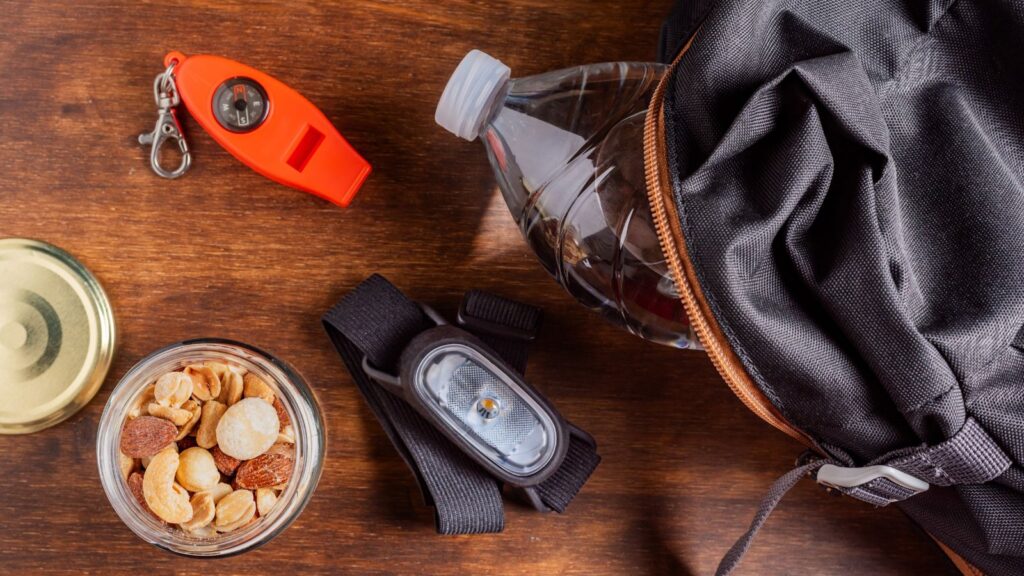Watching tragic movies like Titanic or documentaries about maritime disasters can make the thought of being lost at sea quite daunting. However, such events are very uncommon, and there are practical steps you can take to stay safe if you ever find yourself in such a situation. Here is a list of essential actions to help you navigate and survive being lost at sea.
Ration Food Supplies

Being lost at sea can be hungry work, so it may be tempting to eat as much as possible right away. However, since you don’t know how long you’ll be lost at sea, it’s important to consume any food supplies sparingly so you can fuel yourself for as long as possible. If necessary, try to catch fish or seabirds with improvised tools for additional food.
Maintain a Healthy Mental Attitude

Maintaining a healthy mental attitude when you’re alone at sea is easier said than done. However, focusing on your survival goals and tasks can help you keep your mind occupied and increase your chances of making it back home. You can also use positive visualization and goal setting to help you stay focused.
Keep a Log

If you have any paper or similar material at hand, it can be helpful to document your actions, sightings, and other decisions to help you plan and keep track of your resources. This can also be a good mental exercise to enhance your focus.
Monitor Your Location

Compasses and GPS devices can be used to track your movement and position in the ocean. If you don’t have access to these tools, you can use the sun and stars for basic navigation, and make sure to keep landmarks in sight if you’re near land.
Signal for Help at Every Opportunity

If you ever see any passing ships or aircraft nearby, you should perform the SOS signal (three short, three long, three short) using whatever light or sound devices you have. Keep signaling for as long as possible, until the vessel is out of sight.
Conserve Energy

Energy is an extremely valuable resource when you’re lost at sea, so it’s important to minimize unnecessary movements such as swimming as much as possible. Remain seated or still unless absolutely necessary to conserve water and calories. It’s also important to stay as warm as possible, as being cold also causes your body to burn more calories.
Improvise Fishing and Trapping Tools

While you may not be blessed to have a fishing rod or trapping tool at your disposal, you can sometimes use materials to fashion makeshift fishing hooks and lines. Reflective objects such as sunglasses can sometimes also be used to attract fish.
Stay Hydrated

Obviously, one of the most important things to do when you’re lost at sea and have limited water supplies is to stay as hydrated as possible. Avoid drinking any alcohol or caffeine, as this can lead to dehydration. You should also monitor symptoms of dehydration such as headaches, dark urine, and dizziness to ensure you’re drinking water when you need to.
Protect Against the Sun and the Elements

If you have any hats or other head coverings available, it’s a good idea to use them to protect against the elements and the risk of sunstroke. Apply suncream if you have it and use clothing layers to shield yourself against the elements and maintain your body temperature.
Use Sea Life for Sustenance

Many parts of the fish can be used to increase your calorie and vitamin intake, such as the liver. However, you should be wary of poisonous and hazardous species and eat raw fish sparingly to conserve water.
Practice Sea Survival Techniques

Sea survival techniques, such as floatation techniques, can be very useful in helping you save energy in the water. So if you want to make sure you’re extra prepared before venturing out on the ocean, learn these techniques and practice getting in and out of a life raft from the water. Life jackets and other improvised floatation devices can also be a huge help.
Stay Calm and Assess the Situation

One of the most important things you can do when you first find yourself in this position is to stay as calm as possible and assess your situation. Panicking can lead to impaired judgment and wasted energy. So take deep breaths to manage your fear and prioritize your immediate needs, such as water, food, shelter, and signaling to others for rescue.
Collect and Conserve Fresh Water

As noted by the National Ocean Service, the high salt content in ocean water will only make you thirstier if you drink it and can eventually lead to death if you drink too much. For this reason, it’s important to make use of any fresh water sources, such as rainwater or water bottles. Prioritize collecting rainwater using a cup or any other vessel at your disposal.
Use Emergency Signaling Equipment

Before embarking on an ocean journey, it’s a good idea to stock up on emergency signaling equipment such as flares, whistles, and horns. These can be used to signal distress to nearby vessels. Even if you don’t have these resources at your disposal, you can make use of reflective objects such as mirrors to signal to others.
Create a Shelter

If possible, you should protect yourself from the sun and elements using a makeshift shelter. This can help protect against the risk of sunburn or hypothermia. Use whatever materials you have at your disposal to create shade on a raft or in the water, and stay as dry as possible to maintain your body temperature.
Regularly Check Survival Equipment

If you have survival equipment such as life rafts and signaling devices, you should check on them regularly to ensure they’re working effectively. It’s also a good idea to familiarize yourself with every piece of equipment before beginning your sea journey.
Avoid Predators

Stay on the lookout for any signs of sharks or other dangerous predators. According to Shark Angels, it’s actually a myth that human blood will attract sharks, so you don’t need to be too worried about this. If you’re with others, you can also stay close together to appear larger and deter predators from attacking. You should also avoid splashing excessively if predators are nearby.

